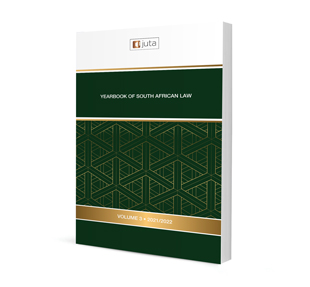Children’s Law

Children’s Law
Author Amanda Barratt
ISBN: 978 148514 016 0
Affiliations: BA (Hons) LLB LLM PhD (University of Cape Town); Associate Professor in Private Law, University of Cape Town
Source: Yearbook of South African Law, Volume 3, p. 105 – 137